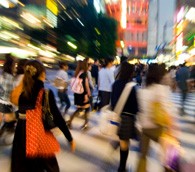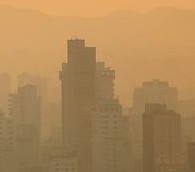Tag: Globalization
Mother Jones Goes to ‘Culture Training’ at an Indian Call Center
by Eva Holland | 07.15.11 | 10:02 AM ET
In the latest Mother Jones, Andrew Marantz has a fascinating story about his brief stint as a worker at a call center in India. Here’s Marantz on the mandatory “culture training” that workers undergo before they hit the switchboards:
Indian BPOs work with firms from dozens of countries, but most call-center jobs involve talking to Americans. New hires must be fluent in English, but many have never spoken to a foreigner. So to earn their headsets, they must complete classroom training lasting from one week to three months. First comes voice training, an attempt to “neutralize” pronunciation and diction by eliminating the round vowels of Indian English. Speaking Hindi on company premises is often a fireable offense.
Next is “culture training,” in which trainees memorize colloquialisms and state capitals, study clips of Seinfeld and photos of Walmarts, and eat in cafeterias serving paneer burgers and pizza topped with lamb pepperoni. Trainers aim to impart something they call “international culture”—which is, of course, no culture at all, but a garbled hybrid of Indian and Western signifiers designed to be recognizable to everyone and familiar to no one. The result is a comically botched translation—a multibillion dollar game of telephone. “The most marketable skill in India today,” the Guardian wrote in 2003, “is the ability to abandon your identity and slip into someone else’s.”
(Via Where Am I Wearing)
McWorld Goes Local
by Jim Benning | 08.28.09 | 12:16 PM ET
Further evidence (not that we needed it) that a globalized McWorld does not necessarily mean global homogeneity: Increasingly—though it has been going on for years—fast food franchises around the world are rolling out menu items created for local tastes.
Domino’s pizzas come topped with squid in Taiwan, black beans in Guatemala and feta cheese in Greece. In China, Kentucky Fried Chicken sells rice congee, while Col. Sanders in India woos vegetarians with offerings like the Chana Snacker, a chickpea burger topped with Thousand Island sauce.
Eight Great Stories of the Shrinking Planet
by World Hum | 04.28.09 | 10:08 AM ET
To mark our eighth anniversary, we've collected stories from our archives that speak to ways people and cultures are mixing and colliding
Where are the Elegies to the World’s Troubled Landscapes?
by Joanna Kakissis | 03.04.09 | 4:02 PM ET
The Eagles were on to something in 1976, when they lamented the pillaging of the western American landscape in “The Last Resort.” As eco-awareness of global warming makes major headlines, and movie stars and scientists link hands to march against coal-fired power plants, I wonder: Where are the music videos? The equivalent of “We Are The World,” climate-change edition? Or at least a few elegies to the troubled landscapes of our world?
Then I came across “Uyan (Wake Up),” a song about the ravages of environmental irresponsibility released late last year by hunky Turkish pop star Tarkan and baglama viruoso Orhan Gencebay. It’s a fabulous tune, brimming with eastern Mediterranean soul and accompanied by a video (see below) featuring the sexier-than-thou Tarkan and the comfortably weathered Gencebay jamming in a cracked and desiccated land—likely a reference to the fact that great swathes of Turkey are in danger of desertification.
So, inspired by Tarkan and Orhan Gencebay, I compiled a short list of place-evoking environmental songs. I’d love to hear your picks—and if you think eco-songs can save fragile lands, or at least get people thinking that they should stop abusing them.
Sawasdee, Golden Arches
by Julia Ross | 03.03.09 | 12:35 PM ET
Anyone who has frequented a suburban swimming pool or beach resort on the East Coast in recent summers should be familiar, by now, with the sound of consonant-heavy Eastern European accents piercing the salt air. That’s because thousands of college students from places like Moldova and Ukraine arrive each year to work summer gigs as lifeguards, waitresses or hotel clerks under the increasingly popular J-1 student visa program.
Now comes word that the next big J-1 wave could be from Thailand. GlobalPost reports that large numbers of Thai students have begun securing summer visas to work at U.S. fast food joints, with McDonald’s emerging as the workplace of choice. The story portrays the students as single-minded in their endeavor, trudging dutifully to the local Mickey D’s in unglamorous locales like Pittsburgh and Mobile, determined to parlay foreign work experience into hospitality-related jobs back in Bangkok. I hope they’re working in some fun as well. If the Serbian kids who staffed my sister’s pool outside Washington, D.C., last summer are any indication, I’d advise the Thais to consult their Eastern European counterparts on the finer points of letting loose.
I’m not in McDonald’s often (maybe twice a year), but I’ll keep an eye out this summer to see if the trend has reached the nation’s capital.
The Agritourists and Locavores Will Love This
by Joanna Kakissis | 02.25.09 | 12:30 PM ET
Because it would be very satisfying to eat the vegetables you picked at that small and lovely pesticide-free farm during your vacation in, say, Crete or France or Spain and think that maybe you did a tiny little bit to save the planet from global warming.
Organic farms got a big eco-shout-out last week from the European Union’s commissioner for agriculture and rural development, Mariann Fischer Boel, who lauded them as “ammunition against the problem of climate change.” As The New York Times’ James Kanter noted, organic farming often produces fewer emissions than conventional agriculture because it uses fewer fertilizers and leaves soil more stable and better able to hold water.
I’m wondering if organic farms that double as eco-vacations spots may see an awesome branding opportunity here.
On Asia: Points East
by Julia Ross | 01.22.09 | 1:56 PM ET
If this is indeed the “Asian century,” count me as an early adopter. I’ve quit two full-time jobs to explore the world’s most diverse continent, and they were the two best decisions I’ve ever made. To an Asia hand, the lavender fields of Provence might be pleasant, but it’s the chanting of novice monks, the mystical tinkling of the gamelan, a bowl of spicy dan dan noodles that really get the blood pumping. I’m drawn back, again and again, and I don’t know if I’ll ever kick the habit.
My (unlikely) introduction to Asia began in arid, post-Soviet Uzbekistan in the late ‘90s. As soon as my conference in Tashkent wrapped up, I hopped a bus to the Silk Road city of Samarkand, where blue-tiled madrassas dazzled against an azure sky. They were like nothing I’d seen, a window into an ancient time when Tamerlane traipsed across the steppes.
Morning Links: Mexico City’s War on Gum, South Pole Trek and More
by Michael Yessis | 01.09.09 | 9:15 AM ET
- Deep-fried bacon and butter powered three Canadians in the fastest-ever trek to the South Pole.
- Mexico City has had it with all the gum.
- Another amusing story about how it is no longer 1967 in San Francisco’s Haight-Ashbury—except the parts of Haight-Ashbury that recall 1967.
- Interesting piece on 2008’s “cartography boom” and the way maps are changing the way we organize and look at the world.
- Can you get better travel deals by deleting your cookies? A case study.
- This Just In asks what the economic downturn means for coverage in high-end travel magazines.
- Travel book publishers are having problems in this financial climate, too. (Via Eoin Purcell)
- Fewer people live in Montpelier, Vermont (7,495) than any other U.S. capital, yet it supports four independent bookstores. Go Montpelier.
Got a suggestion? .(JavaScript must be enabled to view this email address) your link.
R.I.P. Samuel Huntington
by Jim Benning | 12.30.08 | 1:43 PM ET
The author of The Clash of Civilizations and the Remaking of World Order and other influential books has died at the age of 81.
I read “The Clash of Civilizations” while traveling in Asia in early 2001 and found Huntington’s theories about culture and the world fascinating, even if I didn’t always agree with them. (The book was based on this article.) I always thought the book should be essential reading for any traveler with even a slightly wonkish bent trying to make sense of the world.
In retrospect, early 2001 was an interesting time to be reading the book. As the New York Times obituary points out, Huntington was startling prescient, writing: “Somewhere in the Middle East, a half-dozen young men could well be dressed in jeans, drinking Coke, listening to rap, and between their bows to Mecca, putting together a bomb to blow up an American airliner.”
Other writers, like Benjamin Barber in Jihad vs. McWorld, have offered what I thought were compelling counter-arguments to Huntington’s theory, suggesting that it’s not so much a clash of civilizations but other factors behind many of today’s terrorist attacks. The two books could well be read together.
Huntington wrote many books, including, more recently, a controversial volume about American culture and immigration. It angered many.
Regardless, he was a thoughtful writer and an important thinker. Many readers—including travelers—will miss him and his contributions to political science and our understanding of the world.
As Eco-Tourism Grows, Struggle for Cultural Identity Remains
by Joanna Kakissis | 12.30.08 | 1:08 PM ET
In places heavy with history and natural beauty, eco-tourism often comes deeply infused with nostalgia. Consider the 300-year-old Aspros Potamos cottages in eastern Crete, where goatherds once spent wintry nights as their flocks grazed along the mountain gorge. An Athenian journalist rescued the cottages from dilapidation in 1985 and turned them into simple, solar-powered lodges for those who want to commune with nature and a disappearing culture.
This time of year, you may find young Greeks on winter holiday there, gathered around a communal campfire and singing their grandparents’ favorite folk songs. It’s as much an appreciation of Crete’s fragile natural beauty as an exercise in identity.
Ethical Travel for the Mindful Tourist
by Joanna Kakissis | 12.23.08 | 1:25 PM ET
 Photo by joiseyshowaa (Creative Commons).
Photo by joiseyshowaa (Creative Commons).
Argentina, Bolivia and Bulgaria top the 2008 list of the top ten ethical travel destinations, according to Ethical Traveler, a project of the San Francisco-based nonprofit Earth Island Institute. Researchers studied 70 developing countries “from Albania to Zimbabwe” to see which are actively improving their natural environment and the lives of their people through tourism. Half of the countries on the list are in Latin America but none in Asia, where runaway development has wreaked havoc on the land and human rights abuses continue to worsen.
Kelsey Timmerman: Travels With His Underwear
by Michael Yessis | 12.17.08 | 10:10 AM ET
He talks to Michael Yessis about his quest to find the people who made his clothes
How Can I Save on Transportation During a Round-the-World Trip?
by Rolf Potts | 11.06.08 | 12:34 PM ET
Vagabonding traveler Rolf Potts answers your questions about travel
Logging On
by Jim Benning | 06.12.08 | 5:15 PM ET
Internet access is available almost everywhere. But is that ruining travelers' experiences overseas? Jim Benning reflects on the rise of internet cafes around the globe.
See the full audio slideshow: »
A Journey Into ‘The Second World’
by Parag Khanna | 05.22.08 | 10:40 AM ET
Some bureaucrats joke that they would never claim expertise about countries they had not at least flown over. In an excerpt from his new book, Parag Khanna argues that real global understanding can only come from serious travel.
‘Things Fall Apart’: 50 Years Later
by Frank Bures | 02.29.08 | 11:15 AM ET
For many, Chinua Achebe's classic novel serves as an introduction to Africa. But Frank Bures writes that the place it depicts is now hard to recognize.
Sipping Starbucks, From Bloomington, Indiana to Shanghai, China
by Jeffrey N. Wasserstrom | 01.30.08 | 11:00 AM ET
Westerners often assume that a Starbucks is a Starbucks is a Starbucks, but are they right? Jeffrey N. Wasserstrom recalls the big green coffee machine's arrival in two very different cities.
Starbucks vs. the Traveler
by Jim Benning | 01.28.08 | 12:17 PM ET
Starbucks has 15,000 locations worldwide. Six new shops open every day. Are local cultures doomed? Jim Benning ventures to Tijuana, where Starbucks recently arrived, to find out.
See the full audio slideshow: »
Seoul Does Brunch: South Korea Embraces the Newfound Weekend
by Joanna Kakissis | 11.07.07 | 9:59 AM ET
Photo by Presta, via Flickr (Creative Commons)
As globalization continues its culture-morphing march, it’s brandishing a powerful weapon: brunch. In Seoul, once a city so overworked from a six-day work week that tired South Koreans only socialized late in the evening, a Western-style brunch of toasted bagels and blueberry pancakes is the latest way to bond with family and friends, according to The New York Times.
The Gospel According to Michael
by Abbie Kozolchyk | 10.04.07 | 9:41 AM ET
Disappearing native culture. Vanishing tradition. Abbie Kozolchyk was appalled by the impact of missionaries in Papua New Guinea. But not for long.
- « Prev Page
- Next Page »














